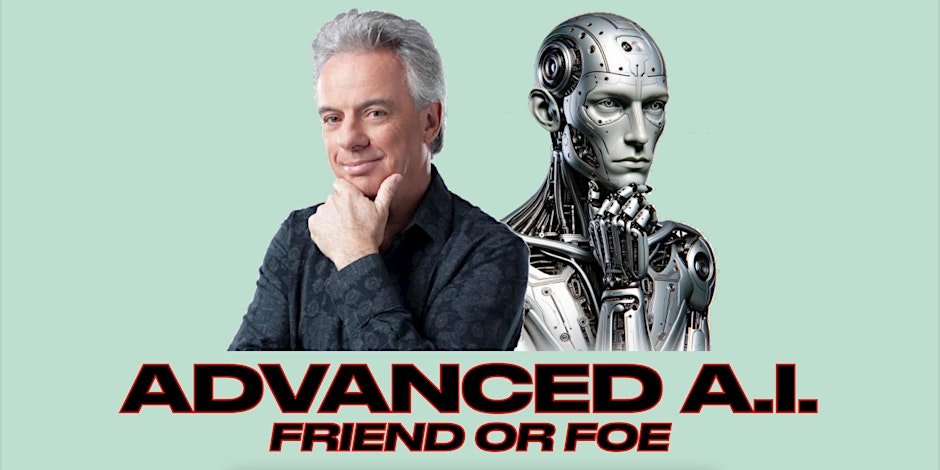
Advanced AI: Friend or Foe?
"Advance AI: Friend or Foe" promises to be a thought-provoking and enlightening event, delving into the multifaceted implications of artificial intelligence in various domains. With speakers addressing crucial viewpoints encompassing education, ethics, art and intellectual property, and healthcare, attendees can expect to gain valuable insights into the potential impact of AI on these areas.
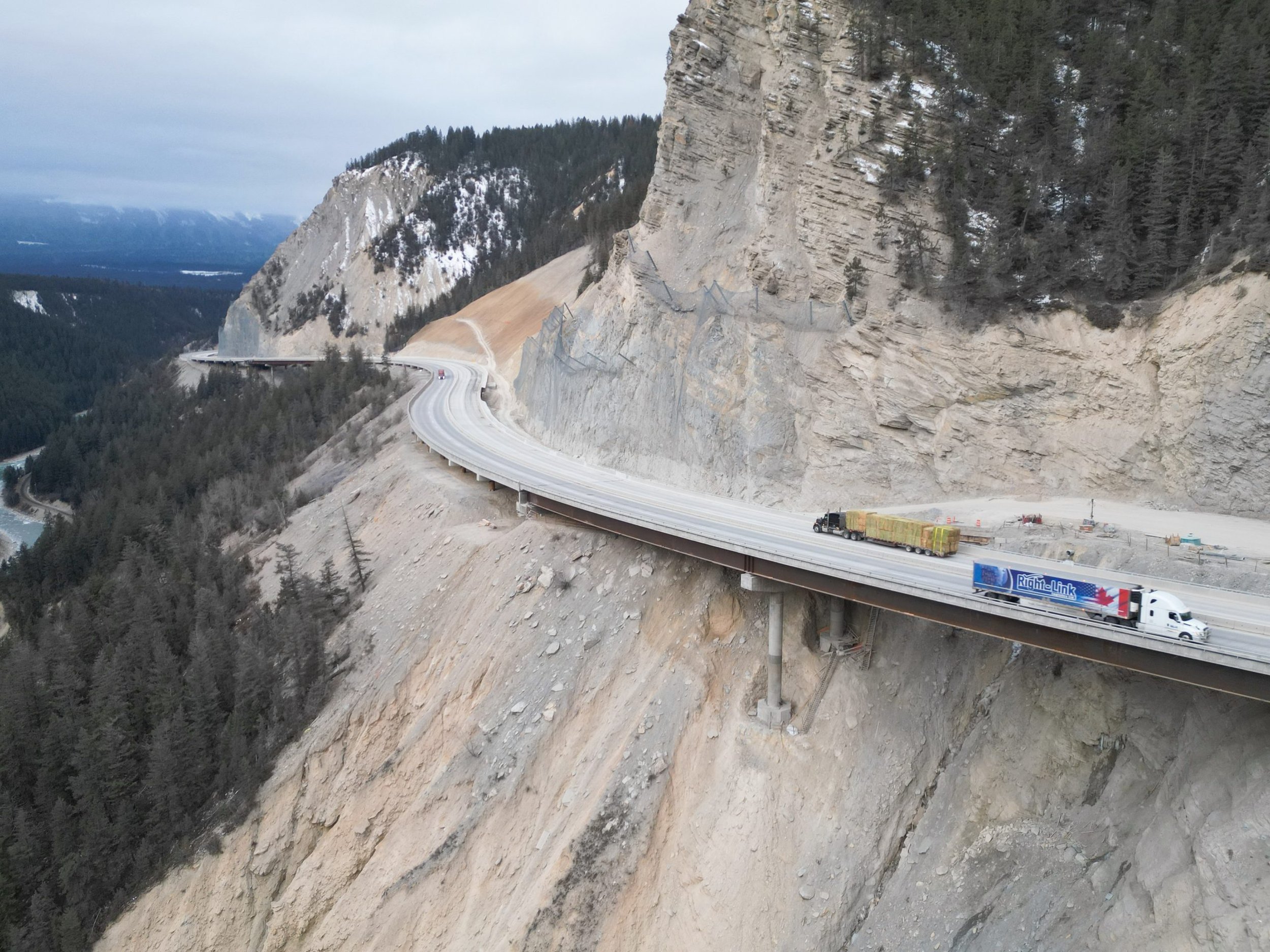
Kicking Horse Canyon Highway Improvement Project
The Kicking Horse Pass extends 80 kilometres through the Rocky Mountains between Golden, British Columbia and Lake Louise, Alberta, and is among the most breathtakingly scenic stretches on the Trans-Canada Highway (Highway 1). Both the Trans-Canada Highway and the Canadian Pacific Railway run through the Canyon, supporting the movement of national road and rail-based goods and tourism. The Kicking Horse Canyon section of the Trans-Canada Highway – between Golden and Yoho National Park – was originally constructed in the mid-1950s with the Yoho (5-mile) and Park (10-Mile) bridges completed in 1956.

Of Molecules and Megawatts: How Kiwetinohk Energy is Engineering A Diversified Energy Future
Under the leadership of CEO Pat Carlson, Kiwetinohk Energy is creating the next-generation business model for future energy companies – a future in which the relationship between “molecules and megawatts” sits collaboratively at the board and management tables. It is experimenting with a vertically integrated model via which power generation comes from diverse sources, including renewables.
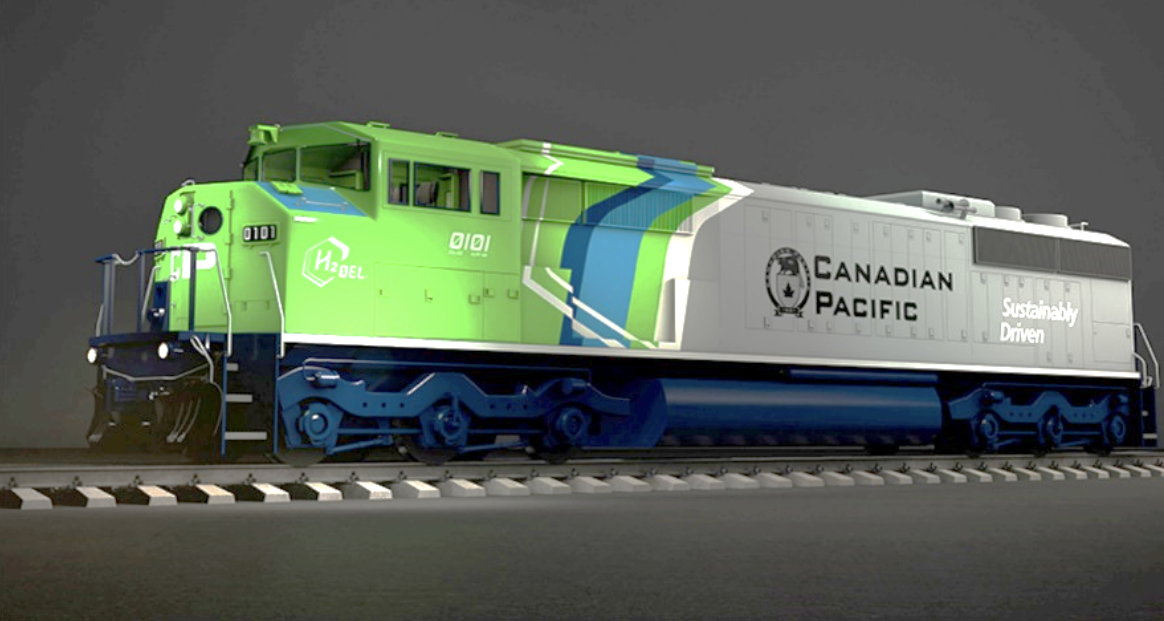
CPKC’s Hydrogen-powered Locomotive
In December 2020, CPKC’s Hydrogen Locomotive Program announced work on the H2OEL, a retrofit of an existing diesel-electric linehaul locomotive. The diesel prime mover and traction alternator are being replaced with hydrogen fuel cell and battery technology to power the unit’s electric traction motors. Ballard is supplying six 200-kilowatt fuel cell modules, which will provide a total of 1.2 megawatts of electricity to power the locomotive.

The Scientific and Practical Challenges of Artificial Intelligence
The popularity of the idea of Artificial Intelligence has created a lot of misconceptions about what it is and is not. Randy will provide an accessible high-level view of some of these misconceptions, including whether the scientific pursuit of AI is about replacing or augmenting humans, where the public perception fails, what the foundational scientific challenges are, and where the immediate high societal value applications are.
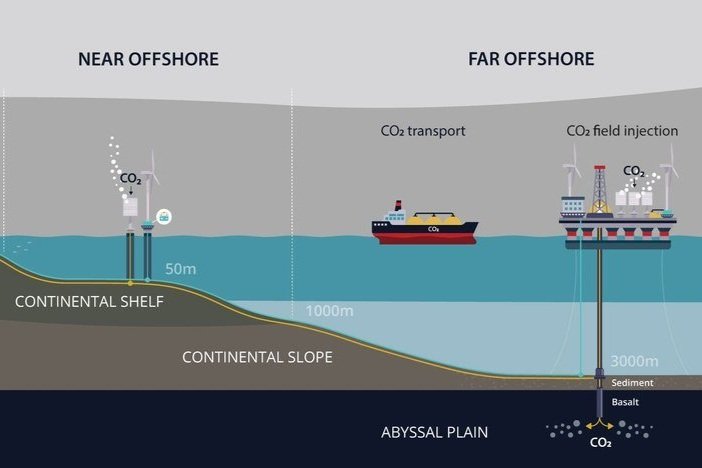
Carbon Capture – In Off-shore, Undersea Rock Formations
Carbon Capture and Storage (CCS) may be one of the most promising approaches to reducing CO2 concentrations in the atmosphere in the short and medium term. CCS generally involves the capture of carbon dioxide (CO2) directly from industrial or power plant fossil-fueled sources -- CO2 that would otherwise enter the atmosphere and eventually penetrate into deep ocean waters. Capture is then followed by removal of the CO2 to secure subsurface reservoirs for long-term storage, either on land or beneath the seabed of the ocean. Efforts to reduce CO2 concentrations in the atmosphere may call for very substantial contributions from CCS in the coming years. Appropriate regulatory structures will be needed. The use of geological formations on land or in waters subject to national jurisdiction will generally be subject to national law.
However, the use of geological formations beneath the seabed beyond national jurisdiction raises transboundary issues and issues with respect to the protection of the global commons. And there are other challenges. Costs will be high and the regulatory climate needs to be supportive while, at the same time, ensuring the protection of the environment. At the international level, measures have been enacted under the London Convention/London Protocol and the regional Convention for the Protection of the Marine Environment of the North-East Atlantic (the OSPAR Convention) to regulate the injection of carbon dioxide into sub-seabed geologic formations for the purpose of climate change mitigation.

Deep Space Biomedical Engineering
Traveling beyond low Earth-orbit implies longer communication delays, rendering ground-based medical support impractical. Furthermore, resupply missions and emergency evacuations are no longer possible. As current operations related to astronaut health are essentially Earth-centric, these challenges give rise to a paradigm shift in operational space medicine.
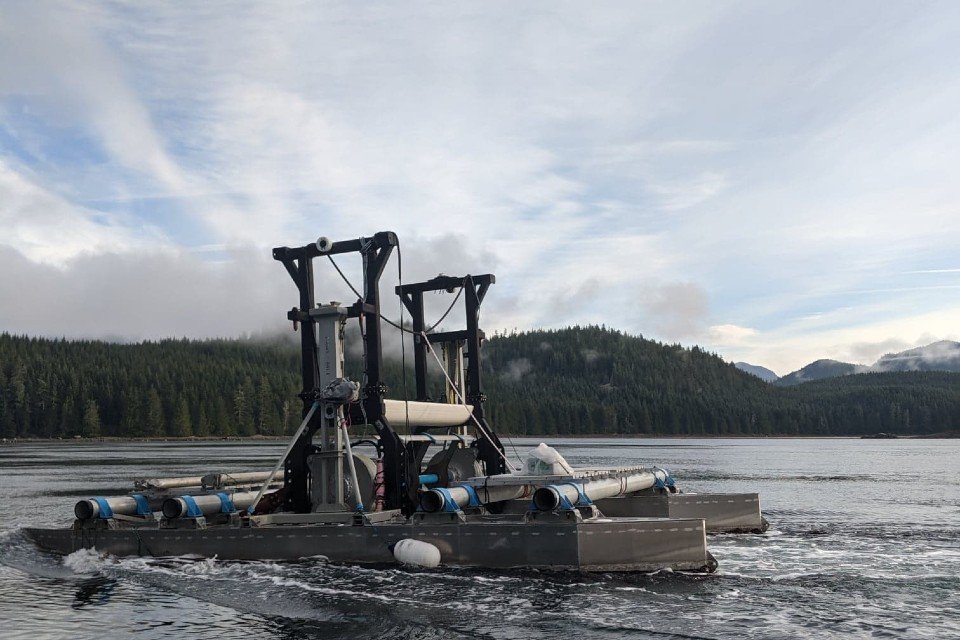
Tidal Energy – BC Implementation Opportunities
A $2.4-million investment into researching renewable energy for coastal communities and in ships whose engines will emit less greenhouse gases was announced at the University of Victoria on August 24, 2023.
The federal government will contribute $1.4 million to kickstart the Pacific Regional Institute for Marine Energy Discovery, a new initiative to develop renewable energy sources for remote coastal communities, many of which now rely on diesel generators for electricity. A $1-million investment by the charitable Dennis and Phyllis Washington Foundation and Seaspan Shipyards will support a green transportation research team led by mechanical engineer Zuomin Dong working with UVic’s Institute for Integrated Energy Systems. The team will research hybrid electric technologies that enable cleaner, lower- cost fuel alternatives for ships and large vehicles.
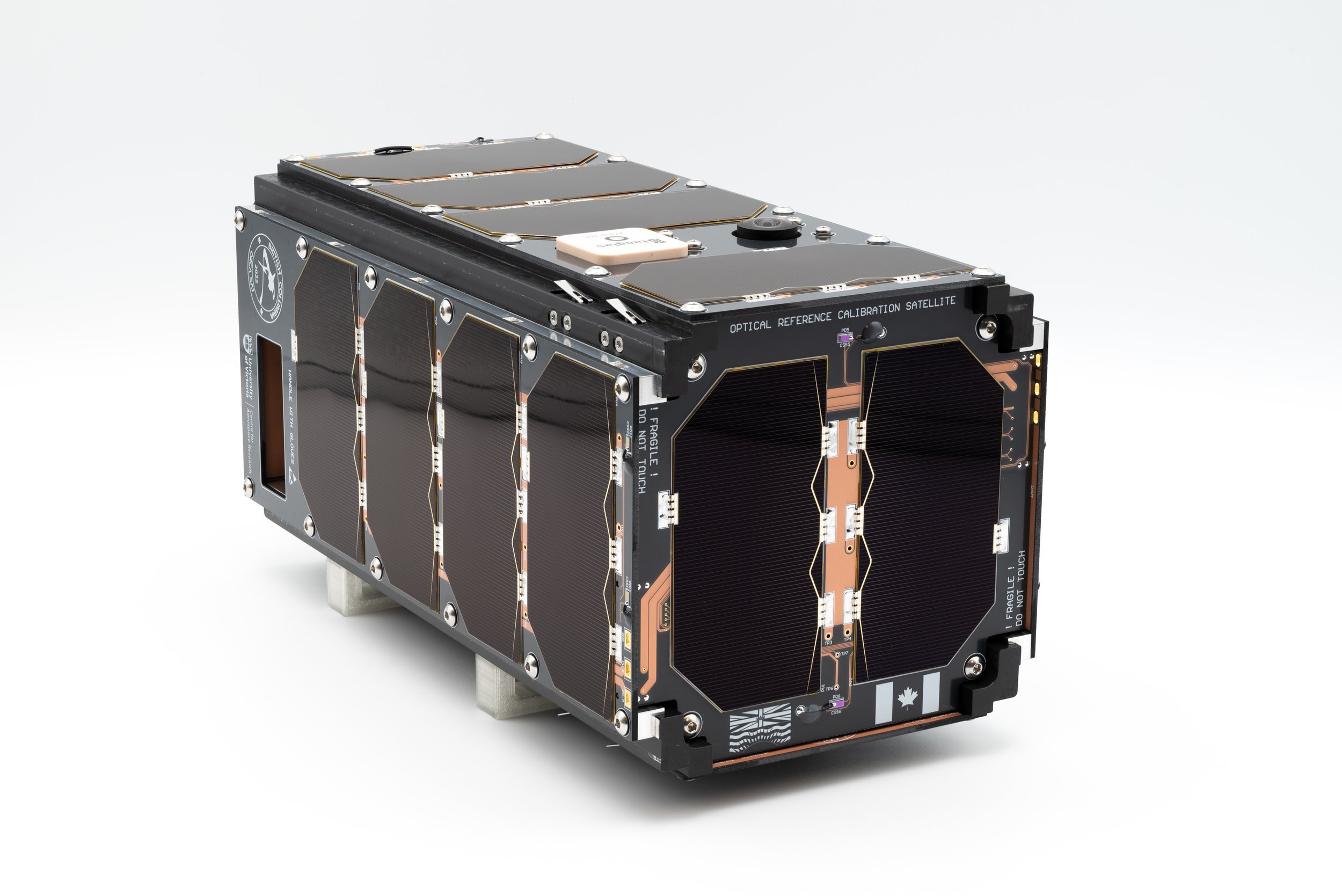
Development and Operations – UVic’s ORCASat CubeSat
The Optical Reference Calibration Satellite (ORCASat) is a 2U CubeSat (a satellite 227 mm x 100 mm x 100 mm), that is designed and built in-house by students at the University of Victoria (UVic) Centre for Aerospace Research. ORCASat also had major contributions from volunteers at UVic Satellite Design, UBC Orbit, and SFU Sat student engineering teams. ORCASat is British Columbia’s submission to the Canadian CubeSat Project (CCP).
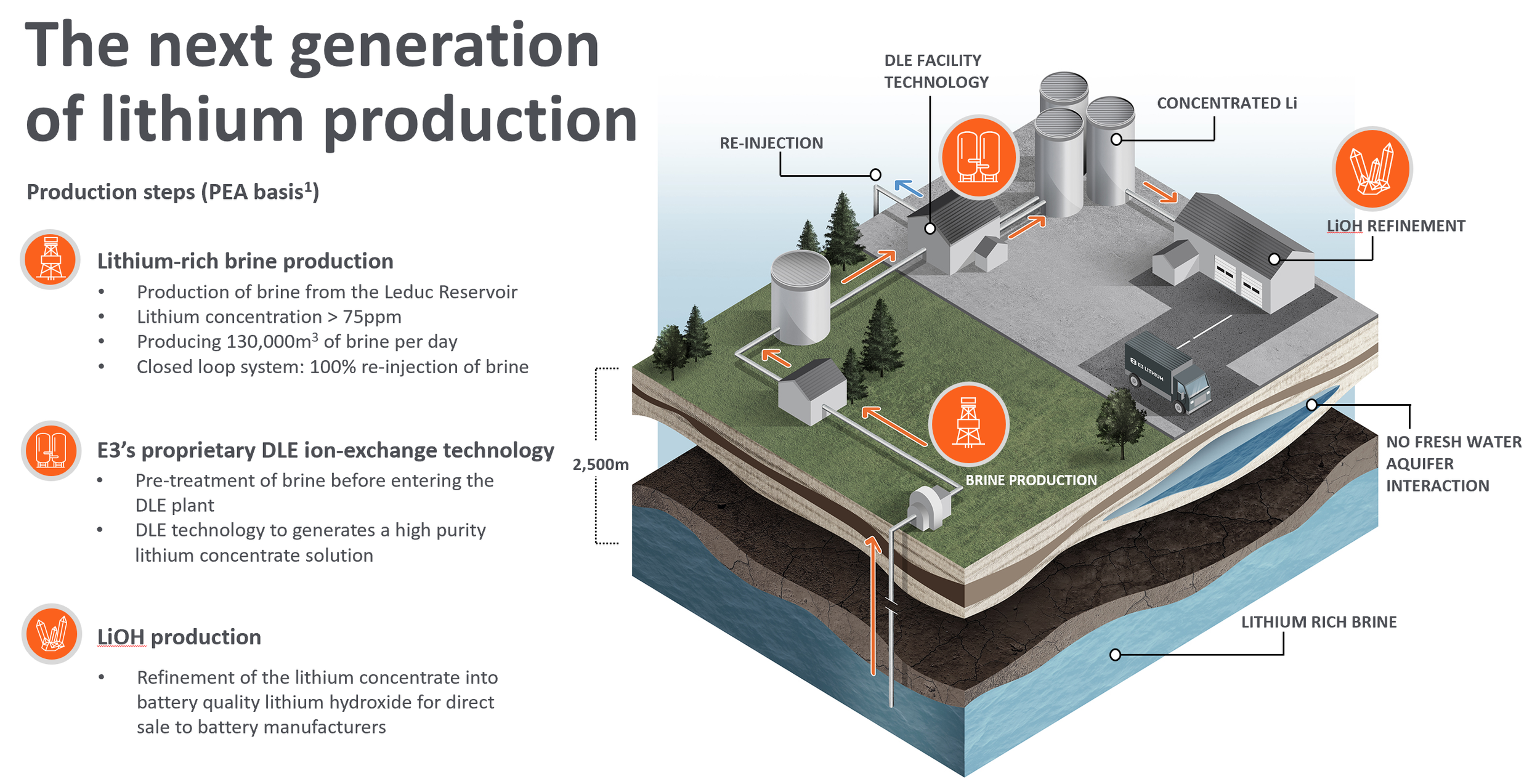
Lithium Mining Technology
E3 Lithium is a lithium resource and technology company aiming to power the growing electrical revolution. Based in Alberta, E3 Lithium’s combined resources, including the Clearwater project, are being developed on the backbone of the mature and sophisticated oil and gas industry. E3 is a Calgary-based pre-production company that has developed a commercialization plan that includes construction of wells and test facilities to de-risk the commercial plant design.
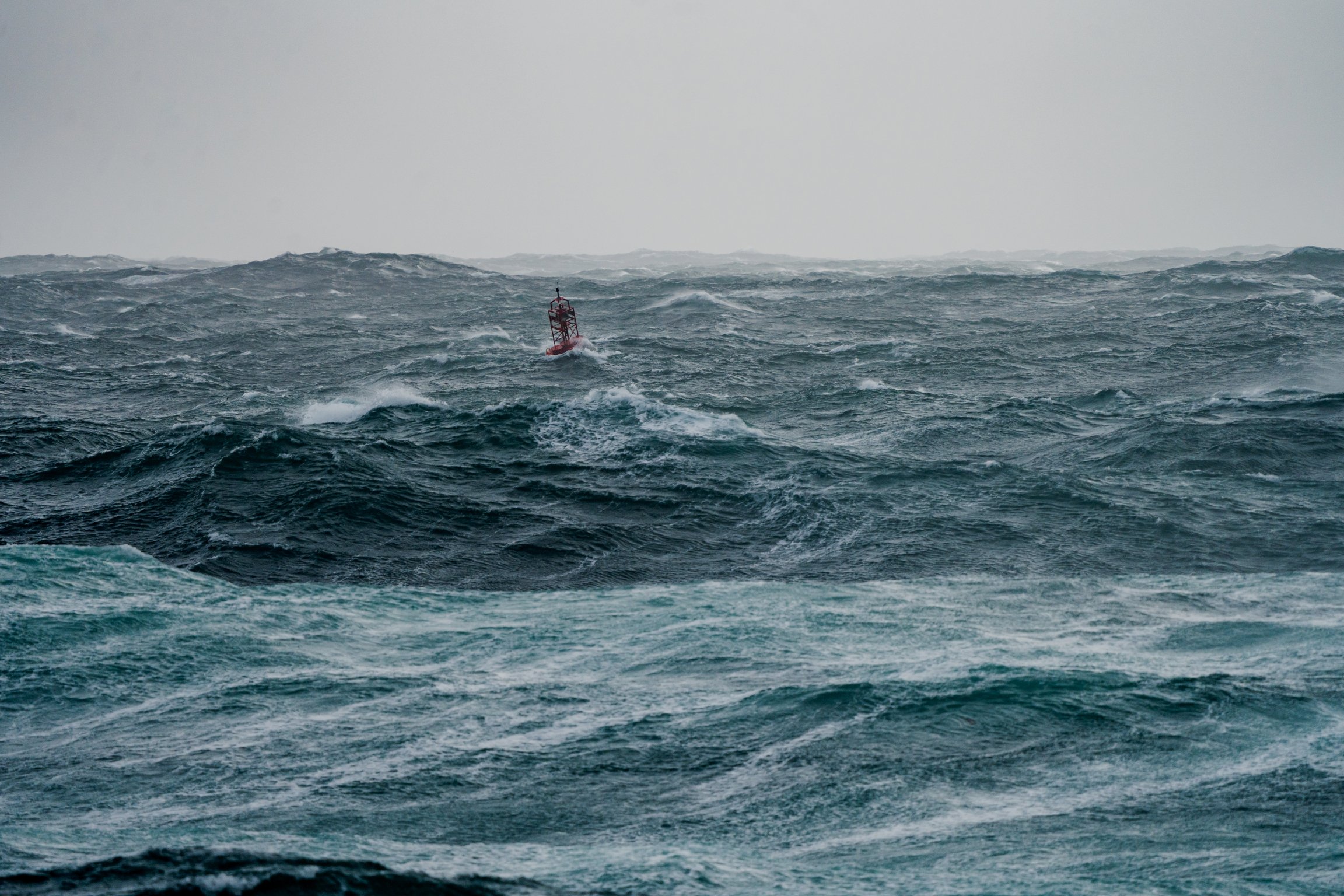
Measuring Rogue Waves and Hurricanes: Developing Scalable Coastal Weather Systems for Marine Safety and Climate Resilience
Based in Victoria, BC, MarineLabs has developed and commercialized an end-to-end subscription-based service called CoastAware that provides access to the world’s highest resolution real-time marine wind, wave, and other data. The data comes from an expanding fleet of their rapidly deployable, rugged, and modular coastal sensors that extend across North America from Atlantic Canada, and from Northern BC to Southern Vancouver Island.

Net Zero Changes Everything
Since ratifying the Paris Agreement in 2016, Canada has committed to ambitious environmental targets, including reaching net zero carbon emissions by 2050. What will that mean for Canada and its economy? The transition to net zero is already underway in Canada, and Dan will highlight the actions that have already been taken to reach Canada’s 2050 goals, including Canada’s Emissions Reduction Act and Plan. He will outline the pathways that can reduce emissions and build a sustainable economy, looking at the progress that has been made by economic sectors, and exploring the need for genuine systems change to create the future we want. Building a thriving net zero world is a complex goal that requires global mobilization. Join us for to discover how you can be part of the solution.
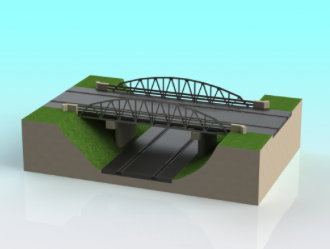
Remote Monitoring to Make Civil Infrastructure Safer
Building the World’s first AI-based Predictive Analytics SaaS Platform for Infrastructure Asset Management.

Reducing 0.5GT/year Green House Gas emissions & strengthening water supply by 2032 with AI in treatment facilities
The water sector is at the heart of two of humanity’s greatest challenges. The first is our growing freshwater demand, driven by a swelling population coupled with the need to uplift those who still do not have access to safe and reliable services. The second is the need to rapidly reduce the emissions associated with delivering these services to fight climate change.
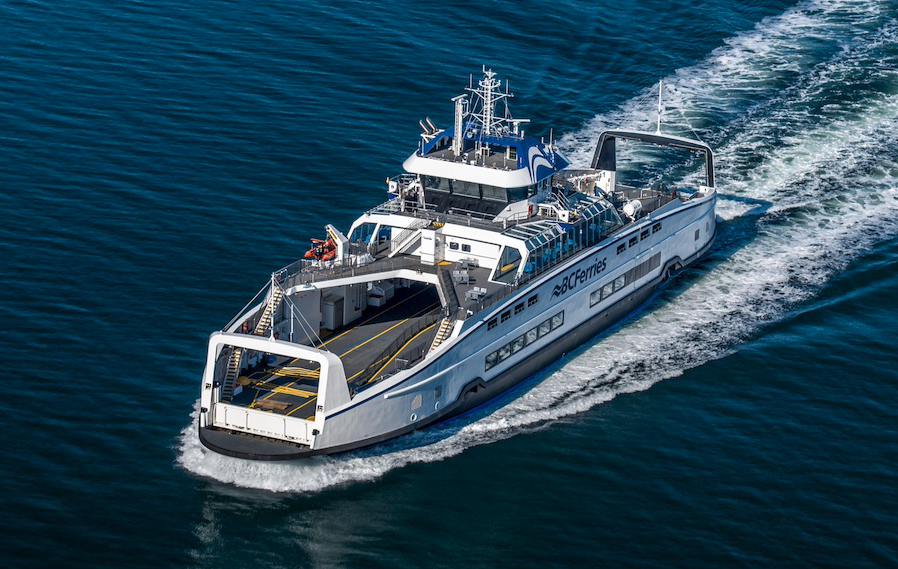
BC Ferries Electrification
BC Ferries sees a very bright future with battery-electric ships, and the next big batch of these vessels could potentially also be built in Canada to create new industries and jobs for Canadians. BC Ferries plans to become a world leader in the development and deployment of totally electrically powered ferries, which are supported by extensive new shore-based systems that allow BC Ferries to take advantage of BC’s extensive, clean-hydro-generated power. This plan will take BC Ferries a long way to meeting its goal of becoming a “zero emission” ferry system.

The Changing Paradigm - High Voltage Electrical Distribution Systems to support “Green” Economy
As the world pushes towards the Great Reset, there is considerable talk about powering our future with renewable energy (RE). However, the allure of harnessing the wind and sun as sources of sustainable energy is not new. In 1931, Thomas Edison told his friend, Henry Ford, “I’d put my money on the sun and solar energy. What a source of power! I hope we don’t have to wait until oil and coal run out before we tackle that”. There is no danger of that happening, as reliance on fossil fuels has proven to be a global warming catalyst threatening our planet with increasingly frequent severe weather events, rising seas, and the accompanying mass migrations. It is widely recognized that we must transition from fossil fuels to renewable energy for energy generation with back up energy storage to make up for when RE systems come up short.

Future of Fusion Power Systems and Canada’s Potential Role
Fusion energy is generated when the nuclei of light elements combine to form nuclei of heavier elements, with an overall change in mass. The energy resulting from the change is enormous and follows Albert Einstein’s famous E=mc2equation.
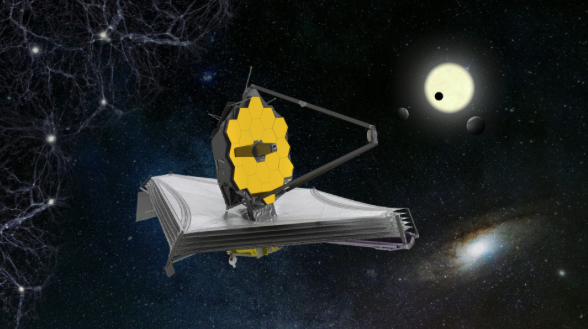
Canada’s Contribution to Webb Space Telescope
VIES is fortunate to have a leading member of Canada’s team who will describe the innovative engineering behind JWST and Canada’s significant contribution to the success of this major international project.
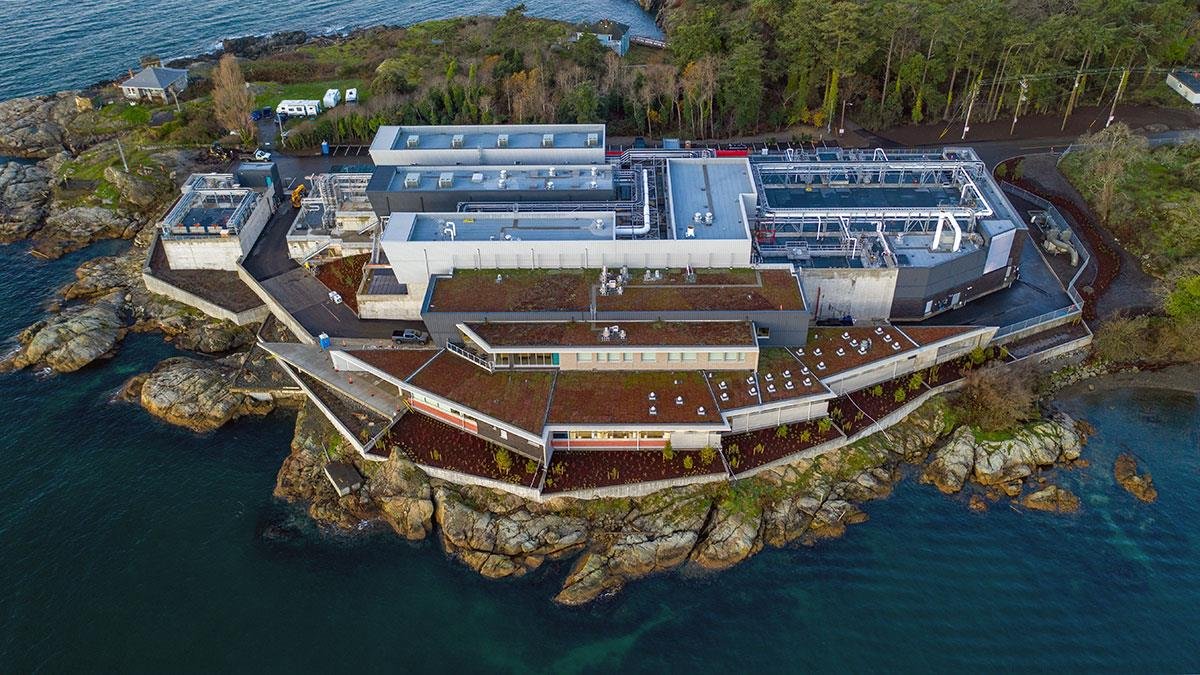
Virtual Tour of Capital Regional District Wastewater Treatment Plant
During the construction of the plant, VIES has been fortunate to get yearly presentations on the various elements of the project. We have a unique opportunity to get a complete virtual tour of the McLoughlin Point Wastewater Treatment Plant. The tour will start with a presentation on the overall project including an overview of engineering challenges and solutions. This will be followed by a guided tour of the Plant where the following processes will be viewed:
Primary Treatment – lamella plate settlers
Wet weather primary treatment – high rate clarifiers
2 mm Fine Screens
Secondary treatment - Moving Bed Biofilm Reactor (MBBR) followed by Biological Aeration Filters (BAFs)
Tertiary treatment – Cloth media disk filters and future UV disinfection
Foul Air treatment – biotrickling filters and carbon adsorbers
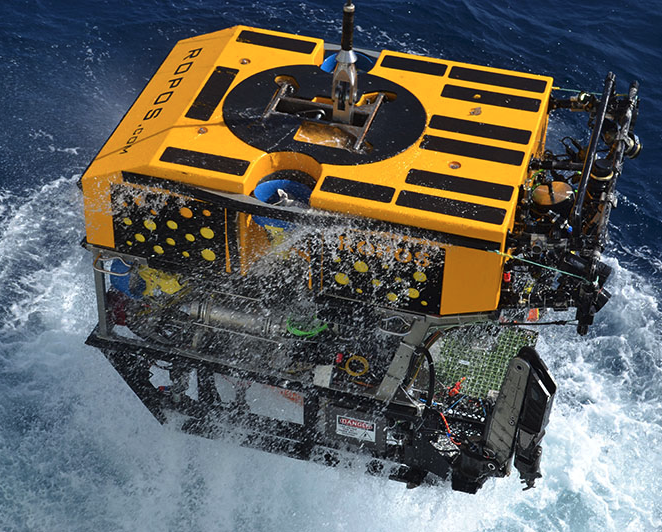
Victoria-based globally deployed deep-sea science capability
CSSF (Canadian Scientific Submersible Facility - https://www.ropos.com/) is proud that its ROPOS system (Remotely Operated Platform for Ocean Sciences) is known as the world’s most capable scientific submersible for its capabilities, versatility, efficiency, and skill and professionalism of its operators. Since its inception, CSSF has made it possible for ocean scientists to conduct research on the ecology of hydrothermal vents, sponge reefs and cold-water corals, and the geochemistry and economic potential of sulphide mineral and gas hydrate deposits, and to perform pioneering work on cabled deep-sea observatories.

UVic Engineering – 21st Century Vision
The University of Victoria’s Department of Engineering is the 2nd largest Faculty at UVic with over 3,000 undergraduates and about 600 graduate students. To meet its growth needs for the future, the Department is undertaking a significant expansion project to expand the Engineering Computer Science Building and add a new High Bay Research and Structures Lab will showcase. To meet the growing demand for graduates from post-secondary engineering programs, UVic now got approved provincial funding to grow the program.

A voltage boost for Vancouver Island’s EV capacity
Rainhouse Canada, a Victoria-based company, is establishing homegrown capabilities to manufacture fully functional battery packs, initially for two applications: an electric utility truck and an off-grid energy storage system (ESS).

Quantum Software & Computing Trends
Quoting Fred Chong, University of Chicago: “Quantum Computing is incredibly exciting because it is the only technology that we know of that could fundamentally change what is practically computable, and this could soon change the foundations of chemistry, materials science, biology, medicine, and agriculture.” Over the past decade, quantum computing has evolved from a field of scientific research to a full-fledged technology industry.

Emergency Response – Developing a new Clinically Relevant ICU Ventilator Fast - Canadian Emergency Ventilators, Inc
How do you respond when your country asks for urgent help?
John Walmsley will tell the story of the urgent pandemic development of an ICU-level ventilator and the vital elements of success.
StarFish Medical updated a 30-year-old design into a modern ventilator for COVID-19 in record time. Work began in April 2020 and, less than three months later, a successful regulatory submission was made to Health Canada. The ventilator avoids parts needed for existing ventilators to prevent supply chain conflicts and is made in Canada to ensure supply chain security.

The Emerging Hydrogen Economy
Canada and dozens of other nations have committed to net-zero emissions by 2050, thereby threatening the future of C-based fuels such as gasoline, diesel and natural gas. There is a growing international consensus that these fuels must be replaced with zero-emission energy carriers like electricity or hydrogen that are produced with little or no greenhouse gas (GHG) emissions. Hydrogen is the energy carrier of choice for heavy-duty and long-distance transport, steel making, and many heat requirements.

Small Modular Reactors (SMR)
Small Modular Reactors (SMRs) are the next generation of nuclear energy innovation, with the potential to help address challenges and opportunities related to climate change and economic growth. The Canadian SMR Roadmap concluded that SMRs provide a source of safe, clean, affordable energy, with the ability to contribute towards a resilient, low-carbon future. SMRs can promote key benefits for Canada and Canadians, such as: meeting Canada’s climate change commitments, unlocking opportunities for job creation and economic growth; and sustaining and expanding Canada’s leadership in research and innovation.

Victoria’s Centre for Ocean Applied Sustainable Technologies (COAST)
The ocean economy is rapidly growing and is already over $3 trillion in size. Pacific Canada is well-positioned to expand its role as a leader in innovative sustainable blue technologies that make an impact, provide rewarding jobs and grow the economy. The Centre for Ocean Applied Sustainable Technologies (COAST) is an innovative hub designed to bring together people, ideas, businesses and communities in an ocean innovation hub and cluster to realize the opportunities of the blue economy by advancing technological solutions that serve the restorative and innovative exploration of our oceans (https://canadacoast.ca/).

Canada’s Oil & Gas Industry Transition to Net-Zero
Canada’s oil and gas sector faces a number of challenges in transitioning to net-zero, however, there are also a number of opportunities in this transition.

Introduction to BC Provincial Digital Health Initiative
The Province of British Columbia is transforming its health sector into a sustainable integrated care delivery system that will better empowers patients and deliver improved health outcomes.

The Pacific Ocean Neutrino Experiment (P-ONE)
Astrophysicists in Germany and North America have published plans to build the world’s largest neutrino telescope on the sea floor off the coast of Canada. The Pacific Ocean Neutrino Experiment (P-ONE) is designed to snare very-high-energy neutrinos generated by extreme events from beyond our galaxy.

Top 20 Technology Trends in 2021 and their Impact on Business
Technology today is a source of new competitive advantage for some organizations and a threat to ongoing survival for others. As a result, the distinction between corporate strategy and technology strategy is blurring—each needs to inform the other.

Engineering Canada’s Future, Dr. Robert Crawhall
Canada and the world are faced with major challenges including pandemics and climate change. What role will engineers play in addressing these challenges? Will we have the skills required to succeed?

Harbour Air’s Electric Aircraft
Harbour Air, North America’s largest seaplane airline, and magniX, the company powering the electric aviation revolution, conducted the first successful flight of the world’s first all-electric commercial aircraft on Dec. 10th, 2019.